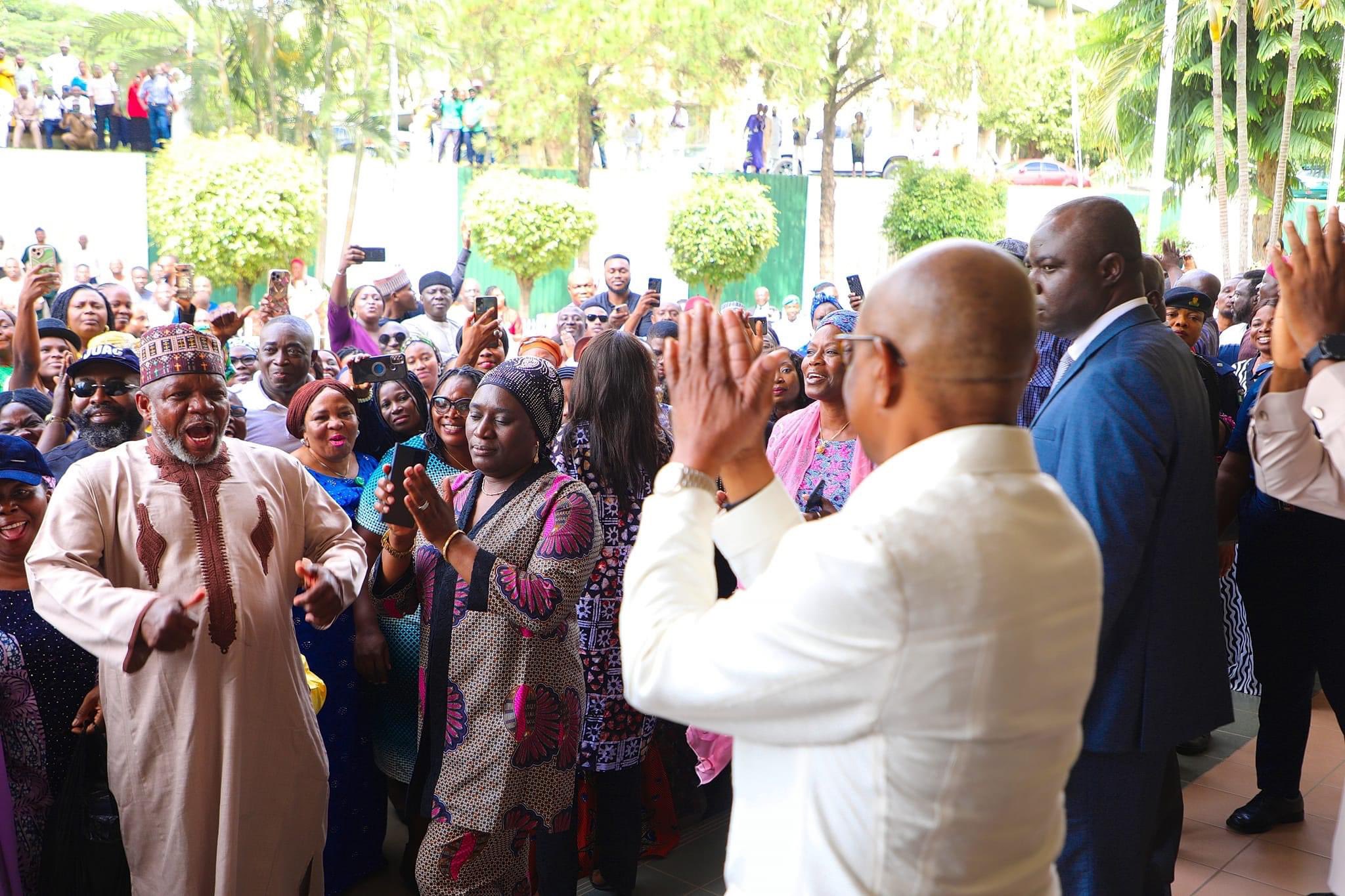Stakeholders Harp On Combating SGBV In Religious Places

Some stakeholders have converged and brainstormed on combating Sexual and Gender Based Violence (SGBV) in the Holy places in Abuja, the Federal Capital Territory (FCT), in the wake of recent high prevalence of the menace especially in religious institutions.
The stakeholders mainly drawn from christian and Muslim faith-based organisations as well as government and non-governmental groups, deliberated yesterday, in Abuja, during a town hall meeting with the theme: “The role of religious institutions in combating”, organised by a Non-Governmental Organisation (NGO), Abiodun Essiet Initiative for Girls (AEIG).
In his remarks, Mr. Gabriel Onyali, a Protection Officer with National Agency for the Prohibition of Trafficking in Persons (NAPTIP), in Abuja Municipal Area Council (AMAC), who gave an overview and forms of SGBV, noted that despite rise in incidence of the menace, there is a lot of improvement in terms of advocacy and sensitisation.
He attributed the development to the number of cases that the agency is currently receiving, which is higher than what it used to receive before.
“Now women are turning up and opening up to report cases that concerns Sexual and Gender Based Violence (SGBV).
“So the issue of culture of silence, we are gradually trying to break it, because even men are coming up to report whatever that happens to them in terms of physical and psychological abuse. So, the fight against SGBV is progressing”, the AMAC NAPTIP Protection Officer stressed.
In his contribution, Chairman, Interfaith, Bwari Area Council, Sheik (Dr.) Ibrahim Yusuf, called for attitudinal change through continuous education of religious leaders, to enable them to be true and good examples in the society.
Yusuf said: “If we really need to curb this menace, then education is important, as there is no way you can change the heart without education.
“Most of the religious leaders are only reading the holy books of God not to change the hearts of people towards God, but they are doing it in order to earn money.
“We need to re-educate , and continue to re-educate religious leaders, including traditional leaders to be good examples.
“So it should be a continuous exercise, not only advocating for it, but continuously educating them”.
Similarly, Pastor Eze Alphunsus, of the Deeper Life Bible Church, noted that the town hall meeting has brought together Muslims, Christians and other religious bodies to talk about the menace.
He said if the people ( imams and pastors), who are at the temple of holiness and the NGOs as well as the Government will collaborate, the society will have a headway.
“It’s not new, as whatever that you are hearing happening now had happened before, even in the scripture there are a lot of cases, but the Bible doesn’t cover sin.
“So, it’s left for the religious leaders to expose the people to this fact, and properly attend to them”, he stated.
On her part, Executive Director of AEIG, Abiodun Essiet, explains: “We decided to this town hall meeting based on the project that we are currently implementing, which has the goal of training traditional justice system to help combat SGBV in FCT.
“So we are hoping that this town hall will address issues about high incidence and prevalence of SGBV in religious institutions.
“We are concern about the increase in the incidence and cases coming in from holy places, where should be sacred, but are turning into where people especially girls and women are being violated.”
The AEIG boss added that ” a lot of people don’t know that there are things called SGBV, so we wanted to draw awareness and some of the structural problem that we have in our society, as a whole people get away with things that they shouldn’t go away with.
“Women are being abused daily, because of poverty, lack of awareness and culture of silence, lack of responsibility or because people don’t know that some of the things they are facing in their homes most importantly, in the holy places, is actual a violence.
“But NGOs are getting involved to rescue the process, by encouraging people to report the cases, and we will see how to follow up and fund the process, to ensure effective investigation and prosecution, to help mitigate the menace”.



